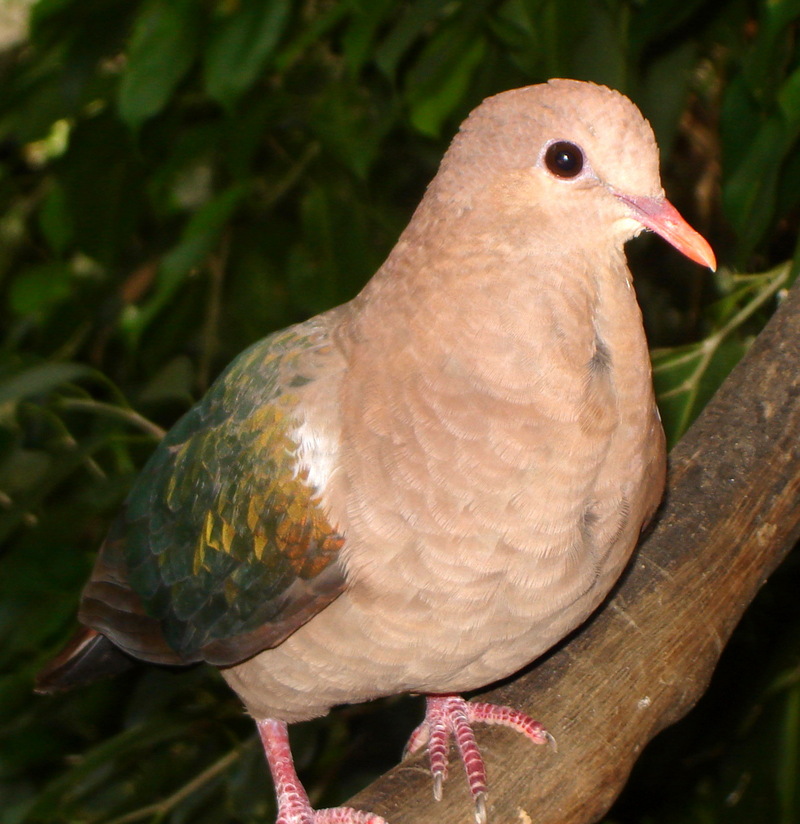Emerald Dove
From Wikipedia, the free encyclopedia
[Photo] Emerald Dove, Chalcophaps indica. Photo taken by Frances76 http://en.wikipedia.org/wiki/User:Frances76
The Emerald Dove (Chalcophaps indica) is a pigeon which is a widespread resident breeding bird in tropical southern Asia from India and Sri Lanka east to Indonesia and northern and eastern Australia. The dove is also known by the names of Green Dove and Green-winged pigeon. It has a number of subspecies, with two existing in Australia, being the longirostris (from Kimberly, Western Australia to Cape York Peninsula) and chrysochlora (from Cape York Peninsula to southern New South Wales as well as Norfolk Island and Lord Howe Island).
This is a common species in rainforest and similar dense wet woodlands, farms, gardens, mangroves and coastal heaths. It builds a scant stick nest in a tree up to five metres and lays two cream-coloured eggs. Breeding tends to occur in Australia spring or early summer in southeastern Australia and late in the dry season in northern Australia.
Its flight is fast and direct, with the regular beats and an occasional sharp flick of the wings which are characteristic of pigeons in general. It often flies low between the patches of dense forest it prefers, but when disturbed will frequently walk away rather than fly. They are particularly good weavers when flying through forests. When flying they expose a buff underwing and a chestnut colour of their flight feathers.
Emerald Dove is a stocky, medium-sized pigeon, typically 23 to 28 centimetres (10 to 11.2 inches) in length. The back and wings are bright emerald green. The flight feathers and tail are blackish, and broad black and white bars show on the lower back in flight. The head and underparts are dark vinous pink (in chrysochlora, more brown in longirostris), fading to greyish on the lower belly. The eyes are dark brown, the bill bright red and legs and feet rufous.
The male has a white patch on the edge of the shoulders and a grey crown, which the female lacks. Females will tend to have a browner complexion with a grey mark on the shoulder. Immature birds resemble females but have brown scallops on their body and wing plumage.
Emerald doves usually occur singly, pairs or in small groups. They are quite terrestrial, often searching for fallen fruit on the ground and spending little time in trees except when roosting. They eat seeds and fruits of a wide variety of plants and are generally tame and approachable.
The call is a low soft moaning cooing consisting of about six to seven coos starting quietly and rising. They also call a nasal "hoo-hoo-hoon". Males perform a bobbing dance during courtship.
Emerald Dove is the state bird of the Indian State of Tamil Nadu.
http://en.wikipedia.org/wiki/Emerald_Dove
| The text in this page is based on the copyrighted Wikipedia article shown in above URL. It is used under the GNU Free Documentation License. You may redistribute it, verbatim or modified, providing that you comply with the terms of the GFDL. |
|

